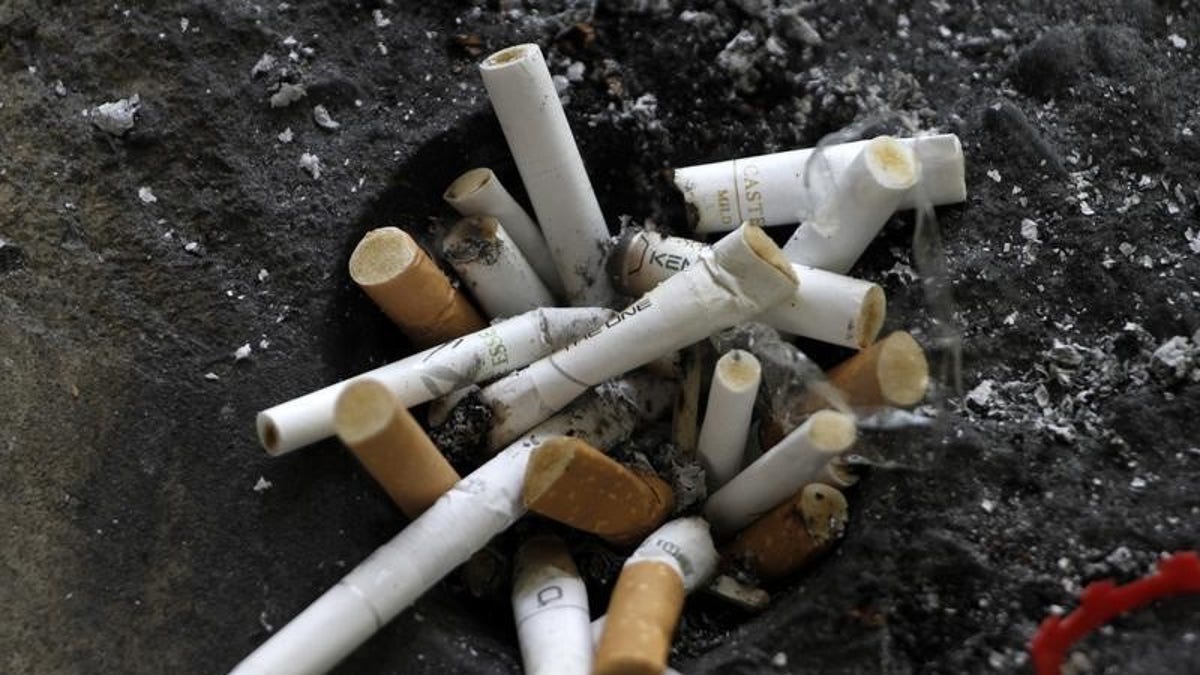
Cigarette butts in an ashtray in Los Angeles, California (Copyright Reuters 2016)
(Adds comments from companies) By Jilian Mincer Nov 9 (Reuters) - California voters on Tuesday approved significant tax increases on cigarettes and vaping devices, but similar measures fell short in Colorado, North Dakota and Missouri. California's Proposition 56 will increase taxes on a pack of cigarettes from 87 cents to $2.87, bringing it more in line with other states. The measure also sets a tax on electronic cigarettes. "This is a huge victory for tobacco prevention efforts," said John Schachter, director of state communications for the Campaign for Tobacco-Free Kids. He said that California, which recently raised the smoking age to 21, could inspire other states to pass similar laws. While U.S. smoking rates have declined significantly in recent decades as more people recognize smoking's links to lung cancer and other diseases, health advocates have sought to prevent a new generation from taking up tobacco. Healthcare groups say high cigarette taxes discourage smoking, while the proceeds help states pay for smoking cessation and prevention programs. "Every 10 percent increase in the price of cigarettes brings about a 7 percent decrease in use by youth and a 4 percent decrease overall," said Schachter. Opponents - including tobacco companies R.J. Reynolds Tobacco and Altria - spent at least $90 million to defeat the measures, including more than $70 million in California against Proposition 56. Supporters of the tax increase, including billionaire investor Tom Steyer, political action committees representing the California Hospital Association and the Service Employees International Union, raised more than $30 million to promote it. Healthcare groups said a key factor in California's success was that supporters raised enough funds to counter the tobacco companies' campaign against the proposition. The initiative is expected to raise $1 billion to $1.4 billion in new tax revenues for California. Most of that would go to Medi-Cal, the state's healthcare program for low-income residents. Opponents said the ballot would increase black market sales of cigarettes and was misleading because "just 13 percent (of the new tax revenue) goes to tobacco prevention and control programs," said Beth Miller, spokeswoman for the NO on Prop. 56 - Stop the Special Interest Tax Grab - Committee. Wells Fargo Securities analyst Bonnie Herzog said that tobacco companies could use their pricing power to mitigate a victory even in California, which is the single largest cigarette consumer by state. "A bigger potential 'risk' is that other states follow suit and try to push through similar pro-tax measures via legislation," she said. The tobacco industry acknowledged that other states likely will seek similar tax increases, but ballot issues are expensive. "You can't ignore that this is an avenue that states could take," said Reynolds spokesman David Howard. The average U.S. state tax rate is $1.65 per pack, according to the Campaign for Tobacco-Free Kids. Thirty-four states have tax rates higher than $1 per pack and 16 states have rates of $2 or more. Chicago has the highest combined state and local tax rate at $6.16 a pack, followed by New York City at $5.85 a pack. The vaping industry also opposed California's Prop 56 because it taxes electronic cigarettes for the first time. They argue that the devices, which produce vapor from liquid nicotine instead of tobacco smoke, should not be taxed at the same rate as cigarettes because they provide a safer alternative to smoking. Use of e-cigarettes has grown quickly in the last decade, with U.S. sales expected to reach $4.1 billion in 2016, according to Wells Fargo Securities. "I think it's the first step in vaping being regulated away," Morningstar equity analyst Philip Gorham said of the California ballot. "If and when vaping gets taxed like tobacco, and when the flavors are restricted and nicotine levels controlled, I think we are going to see the appeal of vaping evaporate." North Dakota has the third-lowest cigarette tax rate in the country at 44 cents a pack. Voters turned down an increase that would have been the state's first in 25 years. Voters in Colorado, currently ranked 38th in cigarette taxation, voted down a measure to add $1.75 in tax per pack, raising the levy to $2.59. The state's Amendment 72 also would have increased taxes on other tobacco products such as cigars and chewing tobacco. Missouri on Tuesday rejected a ballot measure that would have increased taxes by 15 cents annually for four years. It remains the nation's lowest tax at 17 cents a pack, while New York is the highest at $4.35. Healthcare groups opposed the Missouri hike because they considered it too low to discourage consumers from purchasing cigarettes. Tobacco company shares were lower in midday trading on Wall Street. (Reporting by Jilian Mincer in New York and Deena Beasley in Los Angeles; Editing by Jonathan Oatis and Dan Grebler)
